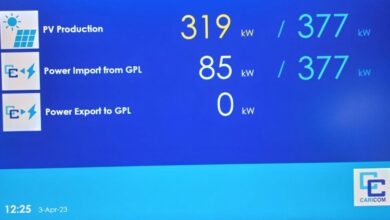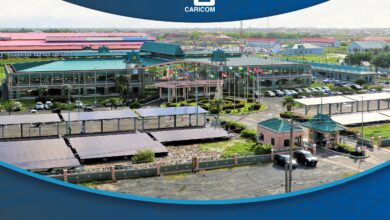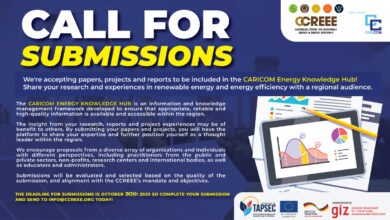Caribbean and German development partners are collaborating to transform the cooling and energy efficiency sectors in the Region. The partners will conduct regional training workshops on the Economic Rationale for Energy Efficiency in the Cooling Sector next week in St. Kitts and Nevis.
The Energy Programme of the Caribbean Community (CARICOM) Secretariat; the Caribbean Development Bank (CDB); and the Deutsche Gesellschaft für Internationale Zusammenarbeit (GIZ), through the Renewable Energy and Energy Efficiency Technical Assistance (REETA) Programme, are the main partners. The Development of NAMAs for the Refrigeration and Foam Production Sectors Project, which is financed by the International Climate Initiative, and the Sector project Technology Cooperation in the Energy Sector (TechCoop) team up to present the workshops.
The sessions, which aim to encourge learning and knowledge exchange across the Region, will bring together policy-makers, technical experts, project developers and representatives of financial institutions.
The training is being held against the background of the disproportionate dependence of some CARICOM Member States on imported fossil fuel, despite the significant amount of domestic renewable energy resources in those countries. The dependence has the domino effect of high exposure to volatile oil prices and natural resources degradation, and negative impact on economic development.
The cooling sector on the Caribbean islands alone is responsible for about 40 per cent of total electricity consumption. Low efficiency levels and high leakage rates of refrigerant gases with high global warming potential, are responsible for the sector’s significant share of greenhouse gas (GHG) emissions. To mitigate both direct and indirect emissions from the cooling-sector, introducing and diffusing green cooling technologies is therefore of paramount importance.
Although financing options to support sustainable energy projects in the cooling sector are available from Development Banks and other financial institutions, many project opportunities do not materialise.
The training in St. Kitts and Nevis is being offered in the quest to mainstream the integration of energy efficiency solutions in the cooling sector into climate processes. It will also address the lack of bankability of existing project opportunities.
The training will consist of two workshops. The first, 12-13 September, will establish a strong focus on Nationally Appropriate Mitigation Actions (NAMAs). These constitute actions under the umbrella of a national governmental initiative to reduce greenhouse gas emissions in a business-as-usual emission scenario. Design, rationale and financing options of NAMAs in the Caribbean Refrigeration and Air Condition sector will be the focus of this workshop.
The second workshop, 14-15 September, will elaborate on and analyse the concept of dynamic investment-grade calculation of energy efficiency projects. Participants will learn how to calculate, model and evaluate actual energy projects based on their case studies. Presentations and plenary discussions, group work activities and match-making sessions will provide a diversified learning experience, peer-to-peer exchange and networking possibilities







